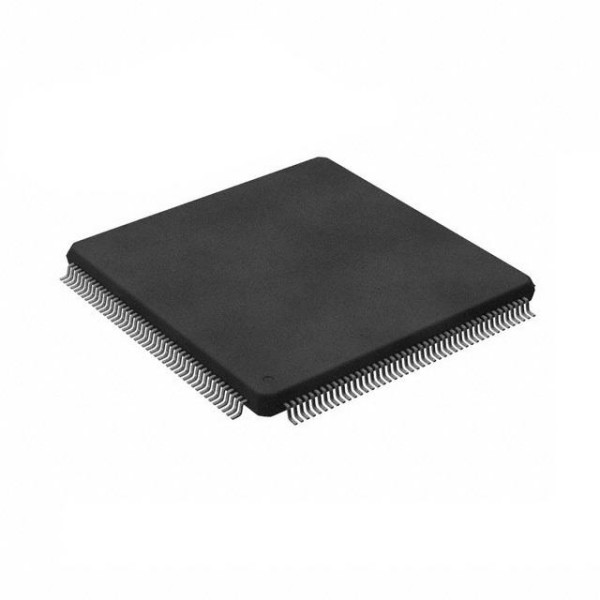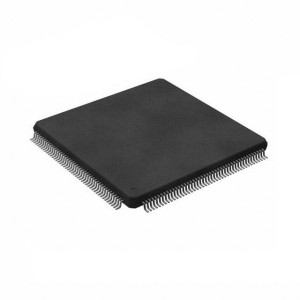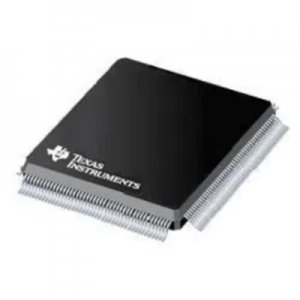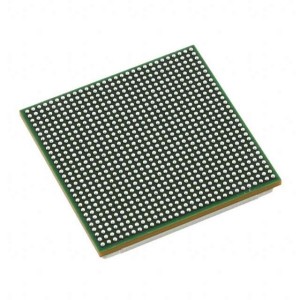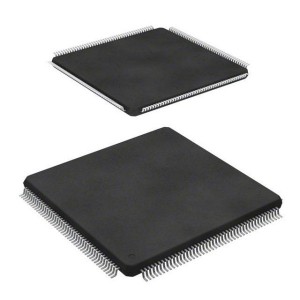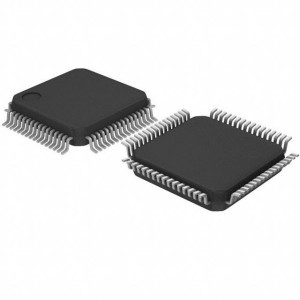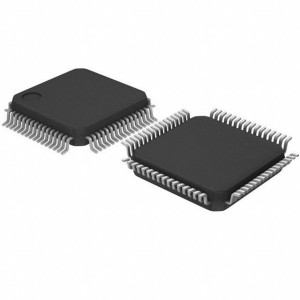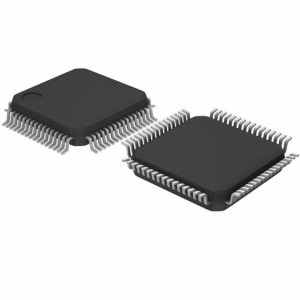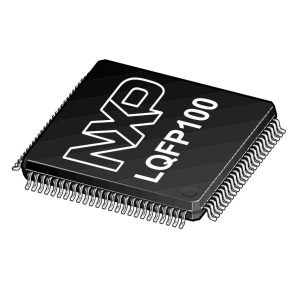TMS320F2812PGFA Digital Signal Processors and Controllers DSP DSC 32Bit Digital Sig Controller w/Flash
♠ Product Description
| Product Attribute | Attribute Value |
| Manufacturer: | Texas Instruments |
| Product Category: | Digital Signal Processors & Controllers - DSP, DSC |
| RoHS: | Details |
| Product: | DSCs |
| Series: | TMS320F2812 |
| Tradename: | C2000 |
| Mounting Style: | SMD/SMT |
| Package / Case: | LQFP-176 |
| Core: | C28x |
| Number of Cores: | 1 Core |
| Maximum Clock Frequency: | 150 MHz |
| L1 Cache Instruction Memory: | - |
| L1 Cache Data Memory: | - |
| Program Memory Size: | 256 kB |
| Data RAM Size: | 36 kB |
| Operating Supply Voltage: | 1.9 V |
| Minimum Operating Temperature: | - 40 C |
| Maximum Operating Temperature: | + 125 C |
| Packaging: | Tray |
| ADC Resolution: | 12 bit |
| Brand: | Texas Instruments |
| Data Bus Width: | 32 bit |
| I/O Voltage: | 3.3 V |
| Instruction Type: | Fixed Point |
| Moisture Sensitive: | Yes |
| Product Type: | DSP - Digital Signal Processors & Controllers |
| Factory Pack Quantity: | 40 |
| Subcategory: | Embedded Processors & Controllers |
| Unit Weight: | 0.066886 oz |
• High-performance static CMOS technology
– 150 MHz (6.67-ns cycle time)
– Low-power (1.8-V core at 135 MHz,1.9-V core at 150 MHz, 3.3-V I/O) design
• JTAG boundary scan support
– IEEE Standard 1149.1-1990 IEEE StandardTest Access Port and Boundary-Scan Architecture
• High-performance 32-bit CPU (TMS320C28x)
– 16 × 16 and 32 × 32 MAC operations
– 16 × 16 dual MAC
– Harvard bus architecture
– Atomic operations
– Fast interrupt response and processing
– Unified memory programming model
– 4M linear program/data address reach
– Code-efficient (in C/C++ and Assembly)
– TMS320F24x/LF240x processor source code compatible
• On-chip memory
– Up to 128K × 16 flash (Four 8K × 16 and six 16K × 16 sectors)
– 1K × 16 OTP ROM
– L0 and L1: 2 blocks of 4K × 16 each SingleAccess RAM (SARAM)
– H0: 1 block of 8K × 16 SARAM
– M0 and M1: 2 blocks of 1K × 16 each SARAM
• Boot ROM (4K × 16)
– With software boot modes
– Standard math tables
• External interface (F2812)
– Over 1M × 16 total memory
– Programmable wait states
– Programmable read/write strobe timing
– Three individual chip selects
• Endianness: Little endian
• Clock and system control
– On-chip oscillator
– Watchdog timer module
• Three external interrupts
• Peripheral Interrupt Expansion (PIE) block that supports 45 peripheral interrupts
• Three 32-bit CPU timers
• 128-bit security key/lock
– Protects flash/OTP and L0/L1 SARAM
– Prevents firmware reverse-engineering
• Motor control peripherals
– Two Event Managers (EVA, EVB)
– Compatible to 240xA devices
• Serial port peripherals
– Serial Peripheral Interface (SPI)
– Two Serial Communications Interfaces (SCIs), standard UART
– Enhanced Controller Area Network (eCAN)
– Multichannel Buffered Serial Port (McBSP)
• 12-bit ADC, 16 channels
– 2 × 8 channel input multiplexer
– Two Sample-and-Hold
– Single/simultaneous conversions
– Fast conversion rate: 80 ns/12.5 MSPS
• Up to 56 General-Purpose I/O (GPIO) pins
• Advanced emulation features
– Analysis and breakpoint functions
– Real-time debug via hardware
• Development tools include
– ANSI C/C++ compiler/assembler/linker
– Code Composer Studio™ IDE
– DSP/BIOS™
– JTAG scan controllers
• IEEE Standard 1149.1-1990 IEEE Standard Test Access Port and Boundary-Scan Architecture
• Low-power modes and power savings
– IDLE, STANDBY, HALT modes supported
– Disable individual peripheral clocks
• Package options
– 179-ball MicroStar BGA™ with external memory interface (GHH, ZHH) (F2812)
– 176-pin Low-Profile Quad Flatpack (LQFP) with external memory interface (PGF) (F2812)
– 128-pin LQFP without external memory interface (PBK) (F2810, F2811)
• Temperature options
– A: –40°C to 85°C (GHH, ZHH, PGF, PBK)
– S: –40°C to 125°C (GHH, ZHH, PGF, PBK)
– Q: –40°C to 125°C (PGF, PBK) (AEC-Q100 qualification for automotive
applications)
• Advanced Driver Assistance Systems (ADAS)
• Building automation
• Electronic point of sale
• Electric Vehicle/Hybrid Electric Vehicle (EV/HEV) powertrain
• Factory automation
• Grid infrastructure
• Industrial transport
• Medical, healthcare, and fitness
• Motor drives
• Power delivery
• Telecom infrastructure
• Test and measurement
